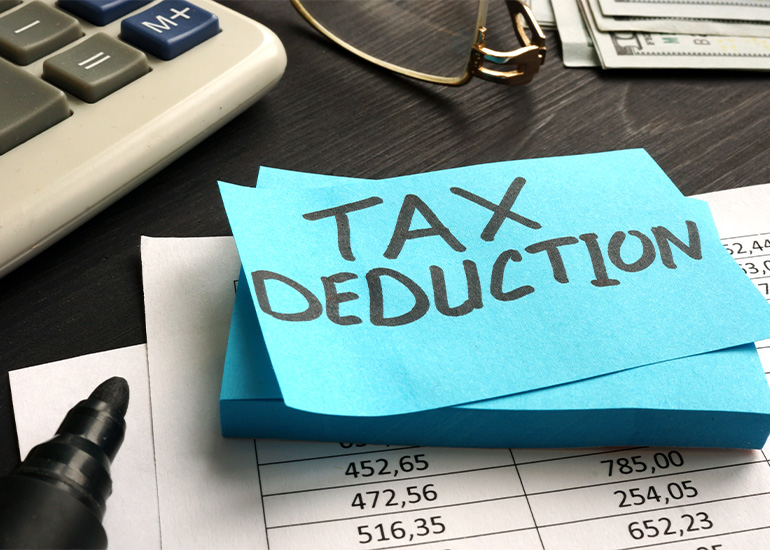PERSONAL TAXATION
Personal tax rates unchanged for 2022–2023
In the Budget, the Government did not announce any personal tax rates changes. The Stage 3 tax changes commence from 1 July 2024, as previously legislated.
The 2022–2023 tax rates and income thresholds for residents are unchanged from 2021–2022:
taxable income up to $18,200 – nil;
taxable income of $18,201 to $45,000 – 19% of excess over $18,200;
taxable income of $45,001 to $120,000 – $5,092 plus 32.5% of excess over $45,000;
taxable income of $120,001 to $180,000 – $29,467 plus 37% of excess over $120,000; and
taxable income of more than $180,001 – $51,667 plus 45% of excess over $180,000.
Stage 3: from 2024–2025
The Stage 3 tax changes will commence from 1 July 2024, as previously legislated. From 1 July 2024, the 32.5% marginal tax rate will be cut to 30% for one big tax bracket between $45,000 and $200,000. This will more closely align the middle tax bracket of the personal income tax system with corporate tax rates. The 37% tax bracket will be entirely abolished at this time.
Therefore, from 1 July 2024, there will only be three personal income tax rates: 19%, 30% and 45%. From 1 July 2024, taxpayers earning between $45,000 and $200,000 will face a marginal tax rate of 30%. With these changes, around 94% of Australian taxpayers are projected to face a marginal tax rate of 30% or less.
Low income offsets: LMITO temporarily increased, LITO retained
The low and middle income tax offset (LMITO) will be increased by $420 for the 2021–2022 income year so that eligible individuals will receive a maximum LMITO benefit up to $1,500 for 2021–2022 (up from the current maximum of $1,080).
This one-off $420 cost of living tax offset will only apply to the 2021–2022 income year. Importantly, the Government did not announce an extension of the LMITO to 2022–2023. So it remains legislated to only apply until the end of the 2021–2022 income year (albeit up to $1,500 instead of $1,080). The Government said the LMITO for 2021–2022 will be paid from 1 July 2022 to more than 10 million individuals when they submit their tax returns for the 2021–2022 income year. Other than those who do not require the full offset to reduce their tax liability to zero,
all LMITO recipients will benefit from the full $420 increase. That is, the proposed one-off $420 cost of living tax offset will increase the maximum LMITO benefit in 2021–2022 to $1,500 for individuals earning between $48,001 and $90,000 (but phasing out up to $126,000). Those earning up to $48,000 will also receive the $420 one-off tax offset on top of their existing $255 LMITO benefit (phasing up for incomes between $37,001 and $48,000).
All other features of the current LMITO remain unchanged (including that it will only apply until the end of the 2021–2022 income year). Consistent with the current LMITO, taxpayers with incomes of $126,000 or more will not receive the additional $420.
As already noted, the Government has proposed that eligible taxpayers with income up to $126,000 will receive the additional one-off $420 cost of living tax offset for 2021–2022 on top of their existing LMITO benefit.
Currently, the amount of the LMITO for 2021–2022 is $255 for taxpayers with a taxable income of $37,000 or less. Between $37,000 and $48,000, the value of LMITO increases at a rate of 7.5 cents per dollar to the maximum amount of $1,080. Taxpayers with taxable incomes from $48,000 to $90,000 are eligible for the maximum LMITO of $1,080. From $90,001 to $126,000, LMITO phases out at a rate of 3 cents per dollar.
Low income tax offset (unchanged)
The low income tax offset (LITO) will also continue to apply for the 2021–2022 and 2022–2023 income years. The LITO was intended to replace the former low income and low and middle income tax offsets from 2022–2023, but the new LITO was brought forward in the 2020 Budget to apply from the 2020–2021 income year.
The maximum amount of the LITO is $700. The LITO will be withdrawn at a rate of 5 cents per dollar between taxable incomes of $37,500 and $45,000 and then at a rate of 1.5 cents per dollar between taxable incomes of $45,000 and $66,667.
COVID-19 test expenses to be deductible
The Budget papers confirm that the costs of taking COVID-19 tests – including polymerase chain reaction (PCR) tests and rapid antigen tests (RATs) – to attend a place of work are tax deductible for individuals from 1 July 2021. In making these costs tax deductible, the Government will also ensure FBT will not be incurred by businesses where COVID-19 tests are provided to employees for this purpose.
This measure was previously announced on 8 February 2022.
BUSINESS TAXATION
Deduction boosts for small business: skills and training, digital adoption
The Government announced two support measures for small businesses (aggregated annual turnover less than $50 million) in the form of a 20% uplift of the amount deductible for expenditure incurred on external training courses and digital technology.
External training courses
An eligible business will be able to deduct an additional 20% of expenditure incurred on external training courses provided to its employees. The training course must be provided to employees in Australia or online, and delivered by entities registered in Australia.
Some exclusions will apply, such as for in-house or on-the-job training.
The boost will apply to eligible expenditure incurred from 7:30 pm (AEDT) on 29 March 2022 until 30 June 2024.
The boost for eligible expenditure incurred by 30 June 2022 will be claimed in tax returns for the following income year. The boost for eligible expenditure incurred between 1 July 2022 and 30 June 2024, will be included in the income year in which the expenditure is incurred.
Digital adoption
An eligible business will be able to deduct an additional 20% of the cost incurred on business expenses and depreciating assets that support its digital adoption, such as portable payment devices, cyber security systems or subscriptions to cloud-based services.
An annual cap will apply in each qualifying income year so that expenditure up to $100,000 will be eligible for the boost.
The boost will apply to eligible expenditure incurred from 7:30 pm (AEDT) on 29 March 2022 until 30 June 2023.
The boost for eligible expenditure incurred by 30 June 2022 will be claimed in tax returns for the following income year. The boost for eligible expenditure incurred between 1 July 2022 and 30 June 2023 will be included in the income year in which the expenditure is incurred.
TAX COMPLIANCE AND INTEGRITY
Taxable payments data reporting: option to link to BAS cycle
The Budget confirms the Treasurer’s earlier announcement that businesses will be provided with the option to report taxable payments reporting system data on the same lodgment cycle as their activity statements, via accounting software. The rules for the taxable payments reporting system are contained in Subdiv 396-B of Sch 1 to the Taxation Administration Act 1953.
The Government will consult with affected stakeholders, tax practitioners and digital service providers to finalise the policy scope, design and specifications of the measure. Subject to advice from software providers about their capacity to deliver, it is anticipated that systems will be in place by 31 December 2023, with the measure to commence on 1 January 2024.
SUPERANNUATION
Super guarantee: rate rise unchanged
The Budget did not announce any change to the timing of the next super guarantee (SG) rate increase. The SG rate is currently legislated to increase from 10% to 10.5% from 1 July 2022, and by 0.5% per year from 1 July 2023 until it reaches 12% from 1 July 2025.
With the SG rate set to increase to 10.5% for 2022–2023 (up from 10%), employers need to be mindful that they cannot use an employee’s salary-sacrificed contributions to reduce the employer’s extra 0.5% of super guarantee. The ordinary time earnings (OTE) base for super guarantee purposes now specifically includes any sacrificed OTE amounts. This means that contributions made on behalf of an employee under a salary sacrifice arrangement (defined in s 15A of the Superannuation Guarantee (Administration) Act 1992) are not treated as employer contributions which reduce an employer’s charge percentage.
Super Guarantee opt-out for high-income earners
The increase in the SG rate to 10.5% from 1 July 2022 also means that the SG opt-out income threshold will decrease to $261,904 from 1 July 2022 (down from $275,000). High-income earners with multiple employers can opt-out of the SG regime in respect of an employer to avoid unintentionally breaching the concessional contributions cap ($27,500 for 2021–2022 and 2022–2023). Therefore, the SG opt-out threshold from 1 July 2022 will be $261,904 ($27,500 divided by 0.105).
Superannuation pension drawdowns
The temporary 50% reduction in minimum annual payment amounts for superannuation pensions and annuities will be extended by a further year to 30 June 2023. The 50% reduction in the minimum pension drawdowns, which has applied for the 2019–2020, 2020–2021 and 2021–2022 income years, was due to end on 30 June 2022










